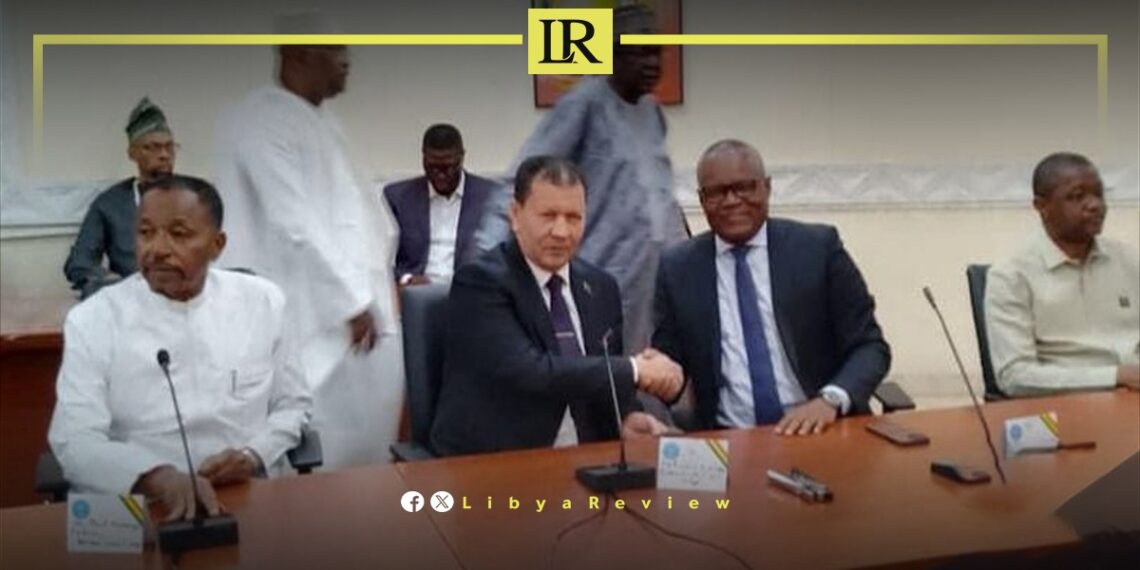A Libyan delegation took part in the meeting of the African States Alliance, led by the Deputy Minister of Foreign Affairs for Political Affairs, Mohamed Issa. The gathering focused on discussing the draft charter of the African Political Alliance. During his speech at the meeting, Issa emphasised the significance of this political alliance. He highlighted the necessity of uniting the African ranks, particularly under current circumstances. He called for a comprehensive renaissance across the African continent.
Issa pointed out the importance of activating the institutions of the African Union (AU), especially its financial ones, including the African Investment Bank hosted by Libya. He stressed the need to tackle the phenomenon of irregular migration and to work towards sustainable development in Africa, in line with the Agenda 2063.
Furthermore, he expressed the importance of joint efforts with member states in the political alliance to achieve its goals and build a better future for the African continent.
This participation underscores Libya’s commitment to playing a significant role in fostering African unity and development. The discussions at the African States Alliance meeting are a step towards realizing a more integrated and prosperous Africa. The discussions addressed key challenges such as illegal immigration and the need for sustainable development.
Libya has been in chaos since a NATO-backed uprising toppled longtime leader Moammar Gaddafi in 2011. The county has for years been split between rival administrations.
Libya’s economy, heavily reliant on oil, has suffered due to the ongoing conflict. The instability has led to fluctuations in oil production and prices, impacting the global oil market and Libya’s economy.
The conflict has led to a significant humanitarian crisis in Libya, with thousands of people killed, and many more displaced. Migrants and refugees using Libya as a transit point to Europe have also faced dire conditions.
The planned elections for December 2021 were delayed due to disagreements over election laws and the eligibility of certain candidates. This delay has raised concerns about the feasibility of a peaceful political transition.
Despite the ceasefire, security remains a significant concern with sporadic fighting and the presence of mercenaries and foreign fighters. The unification of the military and the removal of foreign forces are crucial challenges.


